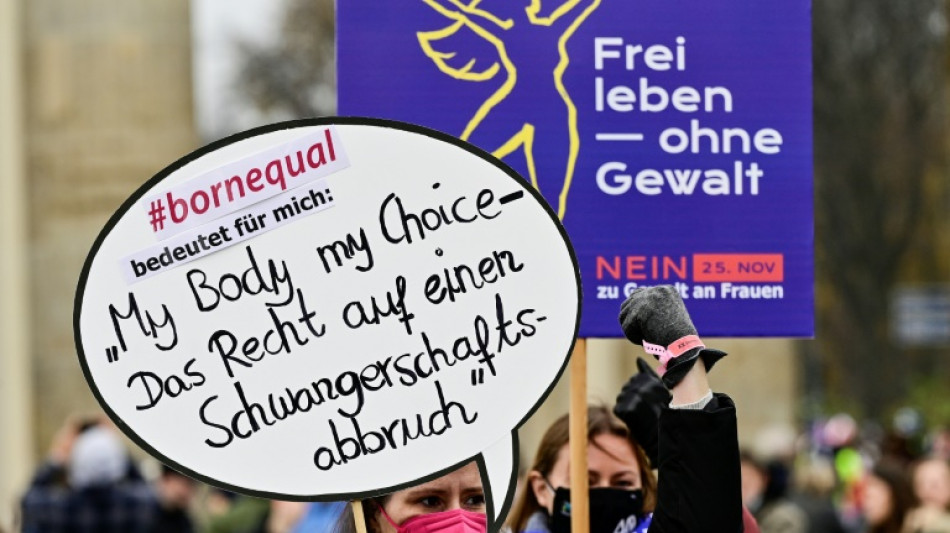
-
 Stand-off leaves Kosovo unable again to elect speaker
Stand-off leaves Kosovo unable again to elect speaker
-
Forest striker Awoniyi has surgery after post collision

-
 Rights groups take UK govt to court over Israel arms sales
Rights groups take UK govt to court over Israel arms sales
-
Cannes Festival under pressure to take stance on Gaza war
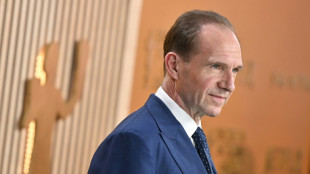
-
 European stocks, dollar steady after China-US truce rally
European stocks, dollar steady after China-US truce rally
-
Putin skipping talks would signal Moscow not seeking peace: Kyiv

-
 Trump basks in Saudi welcome on business-focused state visit
Trump basks in Saudi welcome on business-focused state visit
-
French court convicts Depardieu of sexual assault

-
 Customer data stolen in Marks & Spencer cyberattack
Customer data stolen in Marks & Spencer cyberattack
-
German investors cheered by tariff talks, new government

-
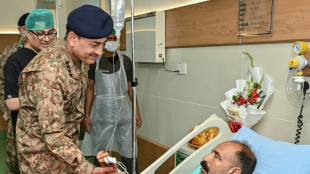 India kills three suspected militants in Kashmir as Pakistan ceasefire holds
India kills three suspected militants in Kashmir as Pakistan ceasefire holds
-
Medical charity condemns Israel's use of hunger as 'weapon of war' in Gaza

-
 Gerard Depardieu: a tarnished French film icon
Gerard Depardieu: a tarnished French film icon
-
Hoy says cancer 'stable' as he 'makes hay while sun shines'

-
 Nissan posts $4.5 bn annual net loss, to cut 20,000 jobs
Nissan posts $4.5 bn annual net loss, to cut 20,000 jobs
-
French court gives Depardieu 18-month suspended sentence for sexual assault

-
 Universe dying quicker than thought, says new research
Universe dying quicker than thought, says new research
-
Police raid conspiracy theorist group 'Kingdom of Germany'
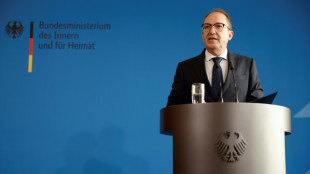
-
 Kohli, Rohit exits leave India facing uncertain new era
Kohli, Rohit exits leave India facing uncertain new era
-
Murray splits from tennis great Djokovic

-
 Nissan posts $4.5 billion annual net loss, says to cut 20,000 jobs
Nissan posts $4.5 billion annual net loss, says to cut 20,000 jobs
-
Most markets extend rally in glow of China-US truce

-
 Kim Kardashian to testify in multi-million-dollar Paris robbery trial
Kim Kardashian to testify in multi-million-dollar Paris robbery trial
-
Trump in Saudi Arabia on Gulf tour, eyeing major deals

-
 Trump starts Gulf trip in Saudi eyeig deals
Trump starts Gulf trip in Saudi eyeig deals
-
Pakistan says 51 killed in India clashes last week
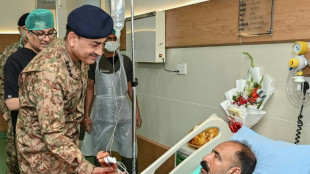
-
 Cricket Australia to support players' decisions on IPL return
Cricket Australia to support players' decisions on IPL return
-
Honda forecasts 70% net profit drop citing 'tariff impact'

-
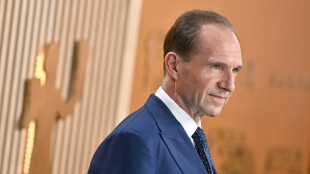 Hollywood stars condemn Gaza 'genocide' as Cannes Festival opens
Hollywood stars condemn Gaza 'genocide' as Cannes Festival opens
-
China swipes at 'bullying' US as it woos Latin American leaders
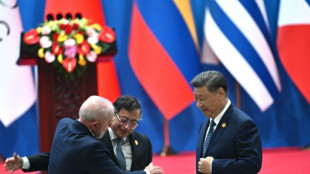
-
 Japan's SoftBank posts $7.8 bn annual net profit
Japan's SoftBank posts $7.8 bn annual net profit
-
Tariffs set to level up game console prices

-
 Vietnam death row tycoon promises to turn properties into 'golden goose'
Vietnam death row tycoon promises to turn properties into 'golden goose'
-
Trump starts Gulf trip in Saudi eyeing deals

-
 US tariffs hit Central Europe, Balkans growth: Europe bank
US tariffs hit Central Europe, Balkans growth: Europe bank
-
No truce in India-Pakistan disinformation war

-
 Japan rugby tightens eligibility rules on foreign-born players
Japan rugby tightens eligibility rules on foreign-born players
-
Knicks leave Celtics on brink, Warriors facing exit

-
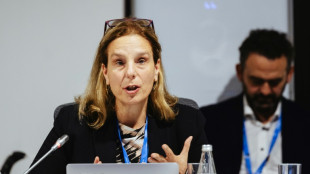 Urban temps turning cities into 'ovens,' UN Chief Heat Officer warns
Urban temps turning cities into 'ovens,' UN Chief Heat Officer warns
-
Cummins, Hazlewood, Green return in Australia's WTC final squad

-
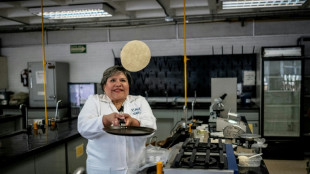 Scientists in Mexico develop tortilla for people with no fridge
Scientists in Mexico develop tortilla for people with no fridge
-
Jaded young Chinese reset lives with rural 'retirement'

-
 Brilliant Brunson and Knicks leave Celtics on brink
Brilliant Brunson and Knicks leave Celtics on brink
-
China's Xi slams 'bullying' as Beijing hosts LatAm leaders
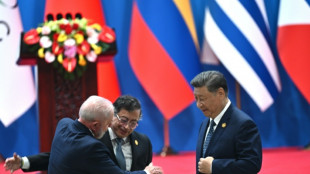
-
 Trump heads to the Gulf eyeing deals amid diplomatic offensive
Trump heads to the Gulf eyeing deals amid diplomatic offensive
-
Taiwanese war drama 'wake-up call' to Chinese invasion threat

-
 UN aviation agency finds Russia responsible for 2014 downing of airliner over Ukraine
UN aviation agency finds Russia responsible for 2014 downing of airliner over Ukraine
-
Most Asian markets extend rally in glow of China-US truce

-
 Celebrations as Hamas frees US-Israeli hostage
Celebrations as Hamas frees US-Israeli hostage
-
Kim Kardashian to testify in Paris multi-million-dollar robbery trial


Germany looks to reform Nazi-era abortion information laws
After years of controversy and criticism from gynaecologists, Germany is planning to scrap a Nazi-era law that limits information on abortion, while access to the procedure in the country remains beset by obstacles.
The Social Democrats, Greens and the Free Democrats, ruling together as a government since December, promised in their coalition agreement to scratch from the statute books one of the most controversial sections of the penal code.
Paragraph 219a, adopted in 1933 shortly after Adolf Hitler had taken power, prohibits the "promotion" of abortion, a crime punishable by "up to two years of imprisonment or a fine".
It is on this basis that courts have in recent years handed out penalties to medical professionals offering information on pregnancy terminations on the internet.
In some cases, the sites offered a simple statement that the gynaecologist carries out abortions, with no further details.
But an end came a step closer after the Justice Minister Marco Buschmann put forward draft legislation at the start of the year to remove the paragraph, though it has yet to be voted on in the Bundestag.
- Strictly limited -
Among the doctors prosecuted in recent years is Kristina Haenel, a general practitioner from Giessen in western Germany, who became the face of the campaign to ditch the law after being fined 6,000 euros ($6,558).
Her legal misadventures created a sensation in the media, reminding Germans that abortion remains severely restricted in law.
The many pitfalls for practitioners dissuade doctors from offering the procedure in a country that was at the forefront of the women's rights movement in the 1970s.
In June 2019, two gynaecologists in Berlin, Bettina Gaber and Verena Weyer, were each also handed two-thousand-euro fines for the same offence.
"I'm pleased that taking an informed decision will now be possible" for pregnant women, Haenel said when the plan to remove the law was announced.
Anti-abortion militants, who organise themselves online, are behind most of the complaints made against medical professionals, while one activist was recently convicted for comparing abortion to the Holocaust.
Under pressure from campaigners, many medics have removed all relevant information from their websites and have declined to be included in family planning lists shared with women looking to end their pregnancies.
The outcry that came in response to the prosecutions led Angela Merkel’s government to relax legislation slightly, allowing gynaecologists and hospitals to indicate online that they offered abortions.
- Advertising -
Specifying what methods were used was, however, still prohibited, a compromise solution that did not satisfy practitioners.
Opposition from within Merkel's own Christian Democrats had prevented the paragraph from being struck from the penal code completely.
Removing the paragraph would mean no longer being able to tell "whether the advertisement came from a cosmetic clinic or an abortion clinic", said Merkel's party colleague Helge Braun, one of her closest aides and who is himself a doctor.
In Germany, a woman wishing to have an abortion in the first 12 weeks of her pregnancy must have an obligatory consultation at an approved centre.
The aim of this dialogue is to "encourage the woman to continue her pregnancy", even if in the end the choice was up to her. After the consultation patients must wait through a "reflection period" of three days.
Except in exceptional circumstances, such as a risk to the life of the mother or in the event of rape, abortions are not paid for by health insurance, despite sometimes costing hundreds of euros.
Around 100,000 abortions are carried out in Germany every year although the number has gone down in recent years.
The subject is still a taboo in Germany, according to a number of gynaecologists, and can be like an obstacle course for patients, particularly in traditionally Catholic Bavaria.
In some parts of the vast southern state, no hospitals offer the procedure, with many people opting to cross the border to Austria instead.
Y.Kobayashi--AMWN